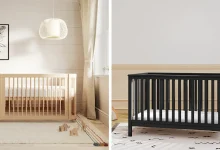The Essential Guide to Band Trailers Everything You Need to Know

When it comes to the logistics of a band on tour, one of the most important considerations is how to transport instruments, gear, and equipment safely and efficiently. While touring vans and buses are a popular choice, many bands opt for a band trailer—a versatile and cost-effective solution to handle the extensive gear needed for performances and practice. In this guide, we’ll dive deep into everything you need to know about band trailers, from the different types available to how to choose the right one for your band’s needs.
What Is a Band Trailer?
A band trailer is a specialized vehicle used by bands and musicians to transport their instruments, sound equipment, merchandise, and other essentials on tour. These trailers are typically towed behind a van, truck, or bus, offering a significant amount of storage space for all the gear required for a band’s performance.
Band trailers come in various sizes and configurations, and their design depends on the specific needs of the band. Some trailers are basic utility models with ample space, while others are designed with specific features to keep equipment secure and organized.
Why Do Bands Need Trailers?
The primary reason bands use trailers is space. Touring bands need to bring a variety of equipment, such as:
- Musical instruments (guitars, drums, keyboards)
- Amplifiers and speakers
- Lighting rigs
- Merchandise
- Cables and wires
- Stage gear (stands, pedals, etc.)
Since many vehicles can’t accommodate all of this gear, band trailers offer a convenient way to transport everything in one place.
Moreover, trailers are ideal for:
- Cost-effectiveness: Renting or owning a trailer is usually more affordable than hiring a second vehicle or using expensive shipping methods for gear.
- Safety and Protection: Trailers are designed with secure storage spaces, ensuring that instruments and equipment are protected from damage while in transit.
- Efficiency: With a band trailer, musicians can load everything they need at once, making loading and unloading faster than if they had to carry items by hand.
Different Types of Band Trailers
Band trailers come in several types, each catering to different needs. Let’s look at the most popular types of band trailers.
1. Enclosed Trailers
Enclosed trailers are the most common type of band trailer. These trailers are fully enclosed, protecting your equipment from the elements, such as rain, snow, and dust. They offer the advantage of keeping sensitive gear—like electronic equipment, guitars, and drums—safe from temperature fluctuations and moisture.
Enclosed trailers also provide the security of locking your gear in place, which is essential when traveling across long distances or in areas where theft is a concern.
Pros:
- Protects gear from the elements.
- Offers security with lockable doors.
- Provides better organization options, such as built-in shelves and racks.
Cons:
- Generally more expensive than open trailers.
- Heavier and may require more power to tow.
2. Open Trailers
Open trailers are, as the name suggests, open to the elements. These trailers are a popular option for bands on a tighter budget, as they tend to be less expensive than enclosed models. While they may not offer the same level of protection from weather and theft, they are still a good choice for bands that don’t need to carry fragile or expensive gear.
Open trailers are often equipped with tie-downs or racks to secure instruments and equipment during transport.
Pros:
- Less expensive than enclosed trailers.
- Lighter weight, making them easier to tow.
- Good for transporting bulky, less fragile gear.
Cons:
- Equipment is exposed to the elements.
- Less secure from theft.
3. Custom-Built Trailers
For bands with specific requirements, custom-built trailers are an excellent option. Custom trailers can be designed to meet the unique needs of your band, whether you need extra storage, built-in shelves, or special compartments for instruments. They can also be outfitted with additional features like soundproofing, climate control, or extra lighting.
While custom-built trailers are typically more expensive than standard models, they offer unparalleled flexibility.
Pros:
- Tailored specifically to your needs.
- Can include specialized features.
- Better organizational options.
Cons:
- High initial cost.
- Longer wait time for construction.
4. Bike Trailers (For Smaller Bands)
For smaller bands with fewer equipment needs, bike trailers can provide a low-cost, compact option. These trailers are ideal for bands that only need to transport a few instruments and are touring locally or on a budget. They can be towed behind a bicycle or small van and are much lighter than traditional trailers.
Pros:
- Extremely cost-effective.
- Compact and lightweight.
- Great for small, local tours.
Cons:
- Limited storage space.
- Not suitable for large-scale tours or bigger bands.
Key Features to Look for in a Band Trailer
When choosing a band trailer, several factors should be considered to ensure that it fits your band’s specific needs. Here are some essential features to look for:
1. Size and Storage Capacity
One of the most important considerations when choosing a band trailer is the amount of storage space it offers. Think about the amount of gear your band has and how much room you’ll need for safe and secure transport. If your band has a lot of large equipment like drum kits, amplifiers, and lighting, you’ll need a larger trailer with more storage space.
2. Weight Capacity
Trailers come with different weight capacities, so it’s crucial to choose one that can handle the total weight of your gear. Overloading your trailer can cause safety issues, so make sure to check the weight ratings of your gear and choose a trailer accordingly.
3. Security Features
If your band’s gear is valuable, you’ll want a trailer with robust security features. Look for trailers with lockable doors, heavy-duty latches, and reinforced walls to keep your equipment secure while you’re on the road.
4. Weather Protection
For enclosed trailers, make sure the trailer is equipped to withstand different weather conditions. Features like waterproof seals, ventilation systems, and insulation can help protect your equipment from the elements.
5. Ramp or Lift Gate
Loading and unloading gear can be challenging, especially when handling heavy instruments and equipment. Many trailers come with a ramp or lift gate to make the process easier. Consider whether your band needs a trailer with a ramp to ensure smooth loading and unloading at venues.
6. Durability and Build Quality
Since band trailers will likely be subjected to frequent use, it’s important to choose one that’s built to last. Look for trailers made from durable materials such as steel or aluminum for added longevity. Strong axles, reliable tires, and sturdy frames are essential for long-lasting performance.
How to Choose the Right Band Trailer
Choosing the right band trailer can be overwhelming, especially with so many different options available. Here are some tips to help you make an informed decision:
1. Assess Your Needs
Take inventory of your band’s gear and figure out how much space you’ll need. Consider whether you’ll need special accommodations for delicate instruments or if your gear is mostly heavy and durable. Think about your budget as well—while custom trailers offer more flexibility, they can be expensive.
2. Determine the Trailer’s Purpose
Consider where your band will be touring. If you’re going on a national or international tour, an enclosed trailer will offer more protection for your instruments. If you’re just touring locally and your gear is sturdy enough to handle the elements, an open trailer may suffice.
3. Consider Towing Capacity
Make sure the vehicle you plan to use to tow the trailer can handle the weight of the trailer and the equipment. It’s essential to match the trailer’s weight with your vehicle’s towing capacity to ensure a safe and smooth ride.
4. Read Reviews and Get Recommendations
Before making a final decision, read reviews and ask other musicians or touring bands about their experiences with different trailers. Word of mouth can be a valuable source of information when making a big purchase.
5. Inspect the Trailer
Once you’ve narrowed down your options, inspect the trailer in person. Check for any signs of wear and tear, look at the tires, inspect the locks and security features, and make sure everything is in good working condition.
Conclusion
A band trailer is an invaluable asset for any touring band, offering both practicality and protection for your gear. Whether you’re a small indie band just starting out or a well-established act with an extensive setup, there’s a trailer solution that fits your needs. By understanding the different types of trailers available and the key features to look for, you can make a decision that will keep your equipment safe and your tour running smoothly.









